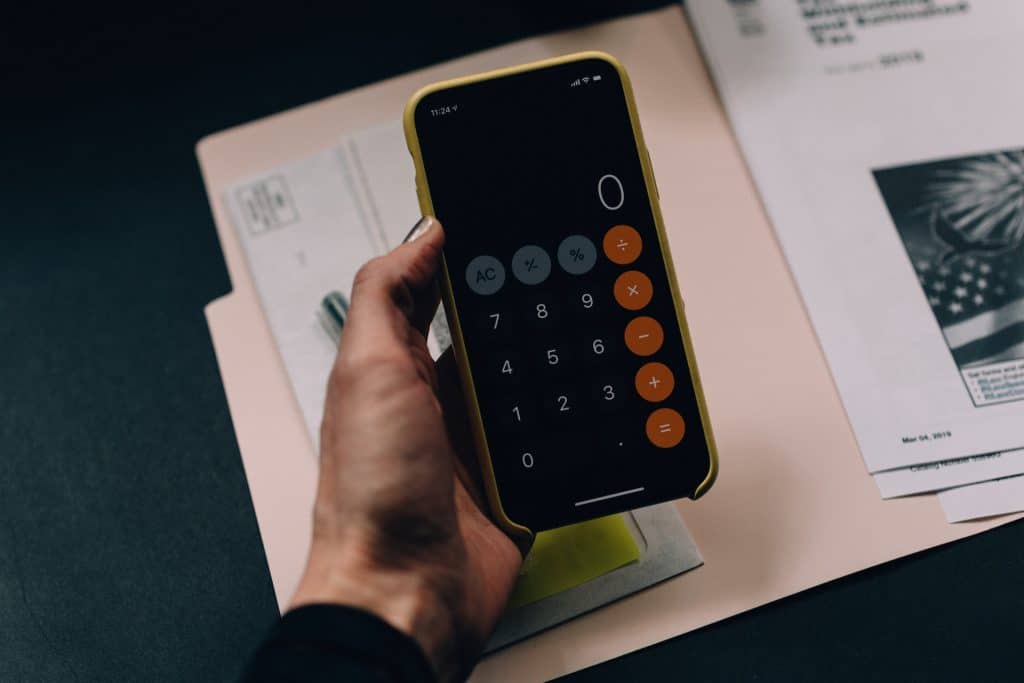
If you work in Australia, your employer must contribute at least 11,5% of your salary to a superannuation fund (super)—a retirement savings plan. These contributions are made regularly throughout your employment. As a temporary resident, you’re entitled to receive super and can claim it back once you leave Australia permanently. Understanding how super works can help you track your contributions and withdraw your funds hassle-free when the time comes.
Table of Contents
What is Superannuation?
Understanding Superannuation
Superannuation, or “super,” is Australia’s mandatory retirement savings system. If you’re working in Australia, your employer must contribute at least 11,5% of your salary into a super fund—this is on top of your wage, not deducted from it. These funds are managed and invested until you retire or leave the country (for temporary residents).
If you are self-employed (freelance), you are not obliged to contribute. In other words, you are not obliged to pay super into a separate account. For more information: Freelancing in Australia.
Who is Eligible for Super?
✅ All workers aged 18+ are entitled to super contributions.
✅ If you’re under 18, you must work 30+ hours per week to qualify.
✅ It applies to full-time, part-time, and casual employees.
❌ Freelancers/self-employed are not required to contribute but can choose to.
How Much is Paid?
🔹 11,5% of your earnings must be contributed by your employer.
🔹 This will increase to 12% in July 2025.
🔹 Employers must pay super at least every three months into your chosen super fund.
⚠️ All employees must receive payment of their super if they are over 18. It doesn’t matter if you’re a foreigner or an Australian. It also doesn’t matter what your visa is (WHV, student, sponsor etc), you must receive super. Similarly, whether you work full time, part time or casual, you must receive these contributions from your employer.
How to Open a Super Account?
You can choose the ‘Superannuation account’ of your choice. This is an account in its own, which means that it will not be created automatically when you open your bank account, so remember to create it.
You have several options:
- You can create a Super account with your bank when you open your everyday account.
- You can choose to contribute to a specific superfund (UniSuper, AustralianSuper, CBUS, Australian Retirement Trust etc). You will be able to consult and monitor the funds online.
- If you did not open a superannuation fund before starting your first job, your employer can open one for you.
There are lots of different super funds available and different types of accounts. Most banks such as Westpac, Commonwealth, offer the option to open a Super Account for you when you open you bank account.
We strongly advise you to open just one account and to ask your employers to always pay your money into the same fund. This will make it easier for you to get your money back and limit account management costs. If your employer opens an account for you, remember to ask for the details (name, ABN, member number).
Be aware of the conditions for opening a fund! It is sometimes difficult or expensive to close it. Different organisations (banks or private funds) charge different levels of management fees, so make sure you get the right information before you open an account. You should also check that your money is not automatically placed on the stock market by the super company, as you could lose money without even knowing it.

How Does a Superannuation Account Work?
Fees & Charges
Superannuation accounts incur management fees, usually $6 to $10 per month, depending on the provider. Some funds also charge for extra insurance—often unnecessary for WHV holders—so review all costs carefully before opening an account.
Investment & Growth
The money your employer contributes is invested to generate returns. You can:
✅ Let the super fund manage investments for you.
✅ Choose between low-risk or high-risk options, depending on your financial goals.
Higher-risk investments can yield greater returns but come with more uncertainty. If you’re unsure, consult your super fund or bank for advice on the best strategy.
How to find and Consolidate Superannuation Accounts?
Recovering a Lost Superannuation Account
It’s common to loose details of a Super account, especially if it was opened for you by your first employer. So, if you didn’t open your own fund through your bank or a private fund, you’ll need to contact your employer(s) to obtain details of the various accounts into which they paid your contributions.
If you are unable to retrieve the details of your various funds via your employer, you can search for lost funds on the ATO website: find a lost superannuation fund. The process is free.
Merging Super Accounts
If you have several superannuation accounts and would like to have just one, you can merge your accounts. For example, this will make it easier to recover your super. It can also save you from paying account management fees several times over. To merge accounts, simply choose the superannuation account you want to keep. You then need to contact the superfund you want to stay with. They will provide you with a form to fill in. They will then take all the necessary steps with the other superannuation accounts on your behalf. The process is also free of charge.

When Can I claim my Superannuation Back?
If you are a temporary resident working in Australia, you are entitled to recover the money you have contributed to your pension when you leave the country, or at least part of it.
How Much Can You Get Back?
🔹 Working Holiday Visa (WHV) holders: 65% of the total amount is deducted by the government.
🔹 Student Visa holders: A lower deduction of 22% applies.
🔹 Superannuation management fees: Additional deductions apply regularly while your account is active.
Once you leave Australia, you can apply online to withdraw your super—but make sure to check how much will actually be refunded before making your claim.
Conditions to Claim your Superannuation
- You are not an Australian citizen or permanent resident.
- You must have entered Australia on a temporary visa: all visas such as WHV, student, partner, other than 405 and 410 visas.
- You must have left Australia: You cannot apply for a super visa if you are still in Australia.
- Your visa must no longer be valid (expired or cancelled).
⚠️ You cannot claim your super until retirement if you are an Australian citizen, a New Zealand citizen or a permanent Australian resident.
What do you do if your visa is still valid when you leave Australia?
Your visa must no longer be valid for you to claim your money. If you return to your home country before your visa expires and wish to claim your super, you will have two options:
- wait until the end of your visa to claim your super,
- or cancel your visa, which will allow you to apply as soon as your visa has been cancelled. In this case, you need to fill in Form 1194.
For working holidays visa makers on subclasses 417 or 462, immigration will not cancel your visa if there is less than 6 months validity left on it. You will therefore have to wait for it to “expire” before applying.
Good to know: If you wish to return to Australia with another visa, you can contribute to a new fund. You can claim your super between two visas. The request for super only prohibits you to come back with the same visa under which you earned this super.

How to Claim my Super: Step by Step Guide
Once your visa has been cancelled or expired, you need to apply for a DASP (Departing Australia superannuation payment). You can apply for a DASP via either:
- the DASP online application – for both super fund and ATO-held super
- a paper form
- for super held by a super fund, use Application for a departing Australia superannuation payment form (NAT 7204) – send this form directly to the super fund
- for ATO-held super, use Application for payment of ATO-held superannuation money (NAT 74880) – send this form to the address listed on the form.
Before submitting your DASP application, check with your employer to confirm they have paid all the super they are required to.
Claiming your super is free. However, you cannot get the full amount of your superannuation back. A 65% tax will be deducted when you claim your superannuation. We recommend you do your DASP online as the process is quicker and free.
Online Process
To claim your super, you will need to visit the ATO website. You will need to complete an online form on the ATO website. When completing the form, you will need to provide:
- your name, date of birth and other personal details
- email address
- your passport number
- Australian tax file number (TFN)
- your super account details – including your super fund’s Australian business number (ABN) and your member number. These informations can be found online when accessing your super account.
Most of the time you will need to attach a certified copy of your visa, or any evidence showing that your visa has ceased to be in effect, together with a certified copy of your passport.
You can also choose how to receive payment of your super. It can be either by cheque or via an International money transfer to your financial institution overseas. Note here that if you require a money transfer to your bank overseas, you will be charge additional transfer fees.
Once completed just lodge the form online.
Processing Times and Payment
The service standard for processing a DASP claim is 28 days from the date you lodged your complete application. There are three payment options:
- electronic funds transfer (EFT) to an Australian bank account (most effective payment option)
- Australian dollar cheque
- international money transfer (IMT) – only for applications to super funds.
Hiring a Tax Agent
You can hire a tax agent who will go through the process for you. They can also assist you in claiming your tax back before or at the end of the financial year. For example, if you are leaving the country in December, you do not have to wait until July to claim your tax back and can do it earlier, together with claiming your super.
How Much super will I get Refunded?
How much super you will get back depends on how long you worked in Australia, what visa you were on, how much you earned, what contributions your employer made to your super fund, and what kind of fund you had.
Working Holiday Visa holders can expect to get back approximately 33-35% of their super, while other temporary visa holders can recoup 60-62%, after deducting tax and admin fees from the superannuation fund. On average, the refund for superannuation is more than $1,900.
There is a free online calculator here that can help you figure out what you’re owed.
⚠️ Don’t include DASP in your tax return: DASP does not form part of your assessable income for Australian tax purposes.

Don’t Confuse Superannuation with Tax Return
Many backpackers mistake Superannuation for a Tax Return, but they are two separate things in Australia.
✅ Tax Return: This refers to income tax deducted from your salary throughout the year. At the end of the financial year (July to June), you must lodge a tax return to potentially reclaim overpaid taxes.
✅ Superannuation: This is a retirement fund where your employer deposits contributions on top of your salary. As a temporary resident, you can claim your superannuation back once you leave Australia, but a significant percentage will be deducted.
FAQ
Yes, you can still come back to Australia on another visa, even if you have claimed your super back. However, you cannot come back to Australia under the same visa under which you earned the super you have claimed back.
No, you can still claim it back. If it’s been 6 months since you left Australia, your super fund will request for the money to be transferred to the Australian Tax Office, who will then hold it for you until you claim it. As long as your visa is no longer valid and you have left the country, you can claim your super. The ATO’s online services can help you keep track of your super, including accounts you may have forgotten or lost touch with.
If you can’t find your TFN anywhere, you can get in touch with the Australian Tax Office and they should be able to help you.
Your super will be taxed at 65% if you are on a Working Holiday Visa and want to claim your money back when leaving Australia. A management fee may also be deducted from your funds.



























My passport expired and I got a new passport on hand.im trying to lodge my super online but they are denying me access and saying that my identity is different and I can’t even lodge my super online.
Hi Tamara,
Maybe you can update your details on your immi account. Also contact your superfund to update your details. Cheers
Hi there , I’m trying to log into myGov to claim tax and superannuation however I no longer have access to my Australian phone number where they send a verification code. I also can’t access myGovID as I’m no longer in Australia (in the UK). How do I change the phone number linked to myGov so I can get the access code please? Thank you!
Hi there, the only solution is to call them to reset your account. Thx
Hi 👋 I spent 6 years working in AUSTRALIA 3 years whv and 3 COVID visa 408 , on the DASP form they ask me to put all my employer… I did so many different job so I don’t remember all of them … It’s too hard and complicated.
Can you please give me a advice or help ?
Thanks 👍🙏